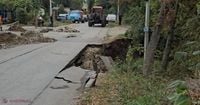On April 14, 2025, a pivotal meeting convened at the initiative of the Ministry of Labor and Social Protection, focusing on the status of social assistance applicants who derive income from agricultural land usage. This gathering brought together key representatives from the State Social Inspectorate, the Ministry of Agriculture and Food Industry, and the Land Relations and Cadastre Agency. The meeting was chaired by Oleg Barcari, the Head of the Directorate for Social Assistance Policies for Low-Income Families and the Elderly, alongside Angela Chirilov, the Director of the State Social Inspectorate.
During the session, the attendees discussed various challenges associated with the demonstration and declaration of status by social assistance applicants. These applicants often face difficulties in proving their income from agricultural activities, which has led to inconsistencies and irregularities in the application of social assistance regulations. Employees of the State Social Inspectorate reported on the findings of a recent control mission that highlighted issues regarding the uniform application of legal regulations governing the right to and granting of social assistance benefits.
In response to these challenges, Barcari proposed several amendments to the existing normative framework, specifically referencing Government Decision No. 1167/2008, which governs the establishment and payment of social assistance. The aim is to prevent situations where beneficiary families might have to return received benefits due to improper declarations of income.
Another critical point addressed was the issuance of certificates and cadastral documents by local public authorities, which are necessary for applicants to validate their income sources. Following extensive discussions, it was proposed that a standard cadastral certificate model be developed to streamline the process for social assistance applicants declaring income derived from agricultural land usage. This new model aims to simplify the verification process and ensure that applicants can more easily demonstrate their eligibility for assistance.
Additionally, it was agreed that the Congress of Local Authorities would be consulted regarding the proposed changes and the development of the standard certificate model. This collaboration is expected to enhance the effectiveness of the social assistance system and better support families in need.
In a related development, the Parliament of Moldova voted on April 14, 2025, to amend the state budget for the year 2025, which includes significant financial allocations aimed at bolstering investments, enhancing energy resilience, and stimulating economic growth. The amendments proposed by the Ministry of Finance are largely funded by financial resources provided by the European Union, aimed at supporting the population and businesses affected by rising energy tariffs.
The state budget revenues were reported to have increased by 3.73 billion lei, surpassing 75.28 billion lei, marking a 5.2% increase from the previously approved figures. This rise in revenue is attributed to unprecedented grants from the EU, which have played a crucial role in supporting Moldova's economic recovery.
On the expenditure side, the proposed budget amendments entail an increase of 7.74 billion lei, representing a 9.1% rise, bringing total expenditures to over 93.19 billion lei. Notably, 3.66 billion lei has been earmarked for energy resilience measures, with the Energy Vulnerability Reduction Fund receiving an additional 2.11 billion lei to provide heating and electricity compensation for households.
All household consumers will benefit from compensation on their electricity bills for the first 110 kWh of usage. Furthermore, 290 million lei has been allocated to cover electricity expenses for businesses and agricultural producers, while 193 million lei is designated for energy efficiency projects funded by the National Fund for Regional and Local Development.
Moreover, 3.8 billion lei has been set aside for implementing measures under the Economic Reform Program, which is part of the broader Economic Growth Plan for Moldova. Significant investments include 1 billion lei allocated to the Road Fund for repairing approximately 200 kilometers of regional and district roads, and another 1 billion lei directed to the National Fund for Regional and Local Development, with 600 million lei specifically for local road repairs in about 100 communities.
In an effort to bolster the agricultural sector and support small and medium-sized enterprises, the government has proposed an additional 200 million lei each to the National Fund for the Development of Agriculture and the Rural Environment, and to assist SMEs. Furthermore, 100 million lei will be allocated to the National Environment Fund, while 60 million lei is designated to support young specialists entering strategic fields, offering a salary surplus of 3,000 lei in their first year of employment.
The budget amendments also include 85 million lei for the construction of the Cahul-Giurgiulești railway line and repairs to the railway line from Prut-2 station to the bridge over the Prut River. Additionally, 17.1 million lei is allocated for the completion of a drinking water supply project for villages in the Hâncești district, and 200 million lei for renovating food blocks in educational institutions.
These budgetary changes result in an increase in the budget deficit by 4.01 billion lei, which constitutes 5.1% of the GDP. Furthermore, the Parliament also voted on amendments to the Law on the Social Insurance Budget for 2025, raising expenditures to 47.96 billion lei, which aligns closely with the revenue figures. This adjustment is deemed necessary to accommodate monetary compensations for heating during the cold season and electricity costs.
The discussions and decisions made during these meetings highlight the government's commitment to addressing the pressing issues faced by social assistance applicants and the broader economic challenges confronting Moldova. By enhancing the regulatory framework and increasing financial support, officials aim to create a more resilient and equitable system for all citizens.






